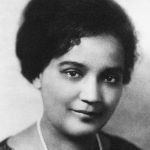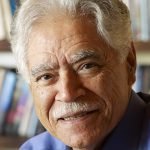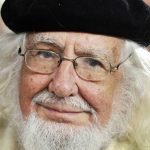Red lips are not so red
As the stained stones kissed by the English dead.
Kindness of wooed and wooer
Seems shame to their love pure.
O Love, your eyes lose lure
When I behold eyes blinded in my stead! Your slender attitude
Trembles not exquisite like limbs knife-skewed,
Rolling and rolling there
Where God seems not to care;
Till the fierce Love they bear
Cramps them in death’s extreme decrepitude.Your voice sings not so soft, —
Though even as wind murmuring through raftered loft, —
Your dear voice is not dear,
Gentle, and evening clear,
As theirs whom none now hear
Now earth has stopped their piteous mouths that coughed.Heart, you were never hot,
Nor large, nor full like hearts made great with shot;
And though your hand be pale,
Paler are all which trail
Your cross through flame and hail:
Weep, you may weep, for you may touch them not.
It is Remembrance Day today and therefore appropriate for me to write about a war poem. When I was considering my blog for today there was no question in my mind of which poet I would choose. Wilfred Owen is probably the best known war poet in the English-speaking world. He might also be my favourite poet. Ever.
So, what do I think is so special about Owen’s poetry? The tragedy of their source — the youth of the poet, his tragic death just days before the Armistice. Their strength — their quiet power, the echoing effects of rhyme and rhythm. Their compassion, indignation, defiance; their strange, delicate beauty…
I could go on. But the reason I have chosen to write about Wilfred Owen is not just because of the greatness of his poetry. No, the reason I want to write about Wilfred Owen today is because I think he embodies everything that Remembrance Day is about: tragedy, the pity of war, the indignation of an innocent generation slaughtered, and the heroism — the ‘Greater Love’ — that war has necessitated in so many people since there were Kings to send them into battle.
Whenever I have read about Wilfred Owen I have always felt a deep connection to him and a deep sympathy — mostly because of how ‘ordinary’ he was before the war. As a boy, all he ever wanted was to be a poet. He started to write verse as a child. He went to France as a young man and taught at a school in Bordeaux for two years, during which time he continued to work on his poetic skills. He was a perfectly unexceptional man in many ways, and his poetry was apparently unexceptional too. Photographs of him show a gentle face. Then the war came and Owen enlisted in 1915. To me there is something so touching about this obviously very sensitive man, this aspiring poet being swept up in that war, a war which was to be a catalyst for his greatness, but also the cause of his death.
Owen broke down and was sent to Craiglockhart Hospital in Scotland, shell-shocked like so many after his first experience of trench warfare. There he met fellow poet Siegfried Sassoon, who helped him to find his voice and encouraged him to write about the war. And then all of that great, booming poetry poured out of him. He went back to the Front only to die on November 4th 1918. But Owen was no coward — he was brave — he even won the military cross. It is as though finding his poetic voice gave him a furious strength, almost a fearlessness. In one of his letters to his mother he wrote “I fought like an angel”. And then he was killed. For me there is no answer to such a tragedy. And when I read Owen’s poems I find there is no answer to give to them either. He makes that war so real for me, and words falter and fail to describe what I feel.
Wilfred Owen’s poetry has become the voice of every soldier from the First World War, and every war since. And what a voice. He speaks for soldiers who would never otherwise be heard — the dead, their voices snuffed out by bullets or shells, and the survivors whose voices were invalidated by ‘shell-shock’ or, as we know it now, post traumatic stress. His poetry is not about pacifism or the rightness or wrongness of war. Today is not about that either. Today celebrates not the war but the heroes of wars — the dead and the maimed. Wilfred Owen speaks for them all. He insures that they are always remembered.
I do not want to do any kind of analysis of the poem posted above, I just want to say one thing about it. In it, Wilfred Owen gives a response to senseless slaughter that most of us could surely only respond to with silence or madness. He makes the dead heroes. Better yet, he sanctifies their death; he transforms their blood into tender kisses, he makes their love “pure”, he uses biblical language for them (“Greater love hath no man than this, that a man lay down his life for his friends” is from the Gospel of John.) In the trenches, in war, he says, “God seems not to care”. But the poem is not about God’s abandonment. That is irrelevant today; it is the soldiers who transcend the evil of war and attain Christ-like status in our eyes. And that is where they belong today.
Reviewed by Emily Ardagh



